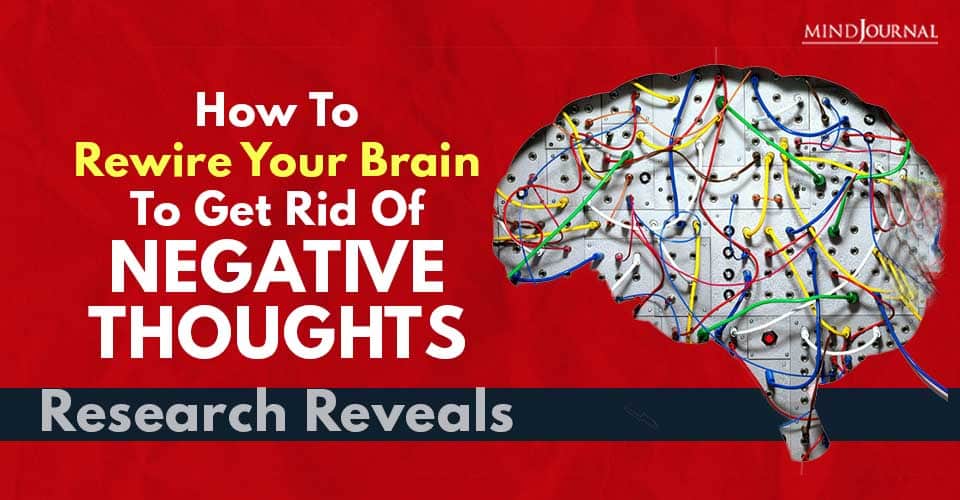Is Negative thinking holding you back? There’s a way to get rid of negative thoughts.
We all know how positive thinking affects our well-being. But, think about this.
Do you actually think about positive things when your mind is brooding over negative ones?
If you do, is it natural or do you need medical intervention or take alcohol?
A social psychologist or rather, a professional people watcher, as she likes to call herself, Alison Ledgerwood addressed this issue in this TEDx talk organized at UC Davis.
Ledgerwood always wondered why our human mind always shifts to negative thoughts. She, of course, has not been an exception. She recounts an experience of her life when she was publishing papers. She was troubled by a paper which got rejected even though other ones were getting accepted.
Related: How to Supercharge Your Dopamine Levels Naturally and Never Feel Depressed or Anxious Again
This made her ask the question: why does a failure stick in our minds so much longer than a success?
She started looking into this question with her colleague, Amber Boydstun from the Department of Political Science:
“Do our minds get stuck in the negative?”
According to Ledgerwood, we are all intuitively aware that we can think about something in different ways.
Think about the glass which is half-filled with water. It can be considered as half empty or half full.
A lot of researchers have proved that it’s our description of the glass that changes perceptions of people about it.
If we say the glass is half-full, it is called the ‘Gain Frame’ because we are gaining things here. People will obviously like it.
If we say the glass is half-empty, it is called the ‘Loss Frame’ and people don’t like it.
Related: Tap these acupressure points on your body to immediately relieve stress and anxiety
Ledgerwood now asks, what if we try to switch from thinking in one way to thinking in another way? Would one of these ideas stick to the mind?
For this, she conducted 3 experiments with 3 different set of situations.
The participants were divided into 3 groups.
Experiment 1:
Here, the participants were introduced to a new surgical procedure.
Group A learnt that it had 70 % success rate.
They liked it immediately.
Group B learnt that it had 30% failure rate.
They didn’t like it.
Now, Group A was being told that it had 30% failure rate. Their liking immediately changed into disliking.
Group B on learning that the procedure had 70% success rate, still adhered to their initial lost frame.
Related: The Science of Happiness: Why complaining is literally killing you
Experiment 2:
Here, the participants were told about the job scenario under the current governor.
Group A learnt that 40% of the jobs were saved under the current governor. They immediately liked him.
Group B learnt that 60% of the jobs were lost under the current governor. They didn’t like him.
Then, it was conveyed to Group A that 60% of the jobs were lost under the current governor. They immediately switched from liking him to hating him.
Group B was conveyed that 40% of the jobs were saved under the governor and they still didn’t like him.
In both the cases, the current governor faced rejection.
The question therefore arises: why does this happen?
Ledgerwood asks the question that is it harder for people to switch from the loss frame to the gain frame?
In order to understand this, she conducted the 3rd experiment.
Related: 9 Psychological Tricks To Attract People And Make Them Like You Immediately
Experiment 3:
This time, the participants were told about an epidemic where 600 lives are at stake.
Group A was asked if 100 lives are saved, how many will be lost?
Group B was asked if 100 lives were lost, how many will be saved?
Group A had to convert from gains to loses and took 7 seconds.
Group B had to convert from loses to gains at took 11 seconds.
This brings us to the conclusion that when we think something negative, it stays in our head and prevents us from changing it.
It’s easy for us to see the negative things but all of us find it difficult to see things from bad to good, to see the same thing in a different way. In order to get rid of negative thoughts and see things from bad to good, we need to put in a lot of effort.
Related: 16 Things That Happen When You Discover Your Hidden Power
According to a researcher at UC Davis, practicing these things daily can boost our positivity:
(1) Writing things you are grateful for at the end of the day.
(2) Sharing good news among our peers.
All of us complain and it’s like an addiction. But it only pulls us down. Taking about positive things repeatedly is the key to a happier and more peaceful life.
Start writing a gratitude journal and explore your joys!
References
Sparks, J. and Ledgerwood, A., 2017. When good is stickier than bad: Understanding gain/loss asymmetries in sequential framing effects. Journal of experimental psychology: General, 146(8), p.1086.
Boydstun, A.E., Ledgerwood, A. and Sparks, J., 2019. A negativity bias in reframing shapes political preferences even in partisan contexts. Social Psychological and Personality Science, 10(1), pp.53-61.
Ledgerwood, A. and Boydstun, A.E., 2014. Sticky prospects: Loss frames are cognitively stickier than gain frames. Journal of Experimental Psychology: General, 143(1), p.376.











Leave a Reply